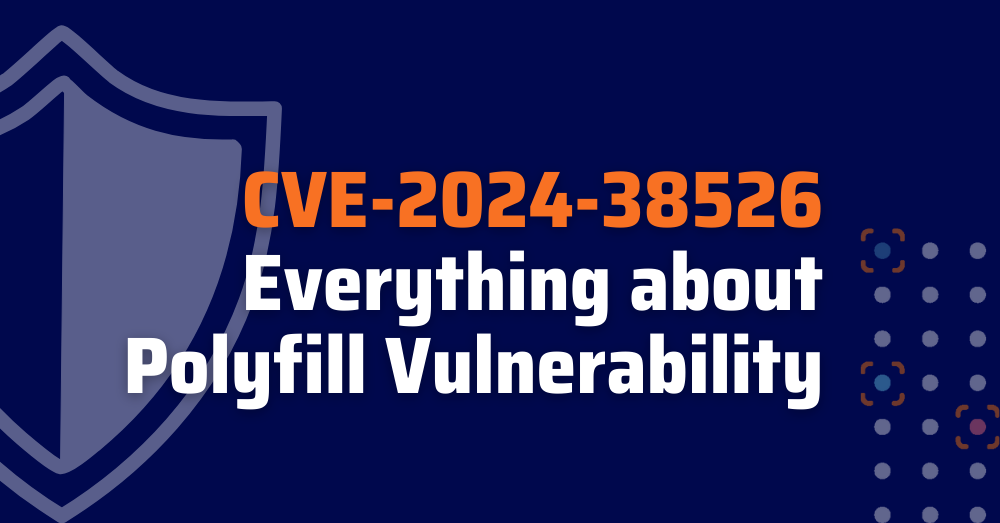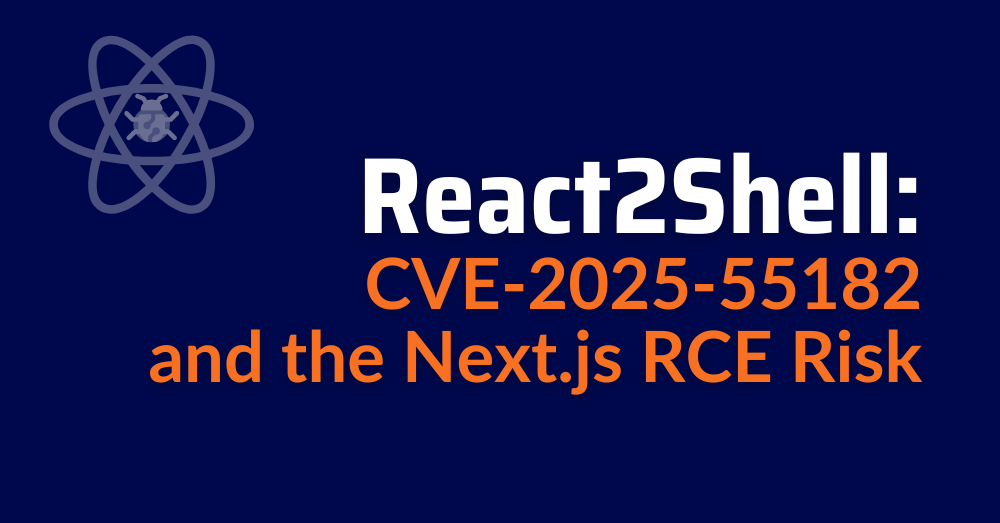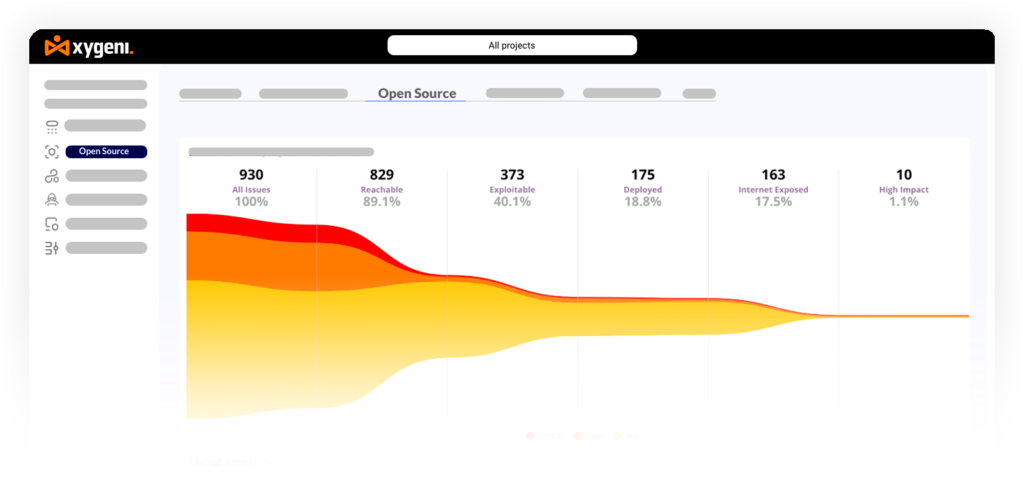The recent discovery of CVE-2024-38526, a critical Polyfill.io vulnerability, highlights the urgent need for strong software supply chain security. This vulnerability exploited a trusted third-party service to insert harmful code into millions of websites. As a result, the Polyfill.io vulnerability demonstrates how just one weak link can put an entire software supply chain at risk. Therefore, protecting your software supply chain is more important than ever.
Introduction: A Critical Supply Chain Threat
CVE-2024-38526 is a high-risk vulnerability found in the pdoc documentation tool for Python projects. To explain, when the --math option was used, pdoc fetched JavaScript files from Polyfill.io. However, after Polyfill.io changed ownership, attackers added harmful code to these scripts. Consequently, websites using this tool became vulnerable to exploitation.
According to the National Vulnerability Database (NVD), this vulnerability created a serious risk because many websites rely on Polyfill.io. Likewise, the MITRE CVE Database explained how the malicious scripts allowed attackers to access data without permission.
Furthermore, as noted in Sansec’s Research, the attackers used this method to affect millions of websites, showing how damaging a supply chain attack can be. Therefore, understanding the details of this vulnerability is essential for securing your development process.
Key Risks of CVE-2024-38526
- Data Theft: Stealing sensitive information like passwords and personal data.
- Malware Injection: Placing harmful code on websites and user devices.
- Unauthorized Access: Gaining entry to systems without permission.
- Trust Exploitation: Using trusted services to spread harmful code.
The developers of pdoc fixed the issue by releasing version 14.5.1, which no longer relies on Polyfill.io. This change, documented in the GitHub Security Advisory, provides a safer way to manage documentation dependencies.
Why the Polyfill.io Vulnerability Matters to Your Software Supply Chain
The Polyfill.io vulnerability is not just a one-time problem. Instead, it points to deeper issues within modern software supply chains. Many organizations depend on third-party libraries and services to speed up development. While this can save time, it also introduces risks.
Furthermore, the widespread nature of this attack shows that both small and large organizations are vulnerable. Therefore, adopting a proactive approach to software supply chain security is crucial.
Challenges Exposed by CVE-2024-38526
- Complex Dependencies: Modern software projects use many third-party tools and libraries. Consequently, tracking all these dependencies becomes difficult.
- Delayed Detection: Sometimes, vulnerabilities go unnoticed until they are exploited. Therefore, early detection is crucial.
- Trust Exploitation: Attackers know that developers trust widely used services. As a result, they target these services to spread malicious code.
Given these risks, protecting your software supply chain requires constant monitoring and proactive security measures. In other words, you need to find and fix problems before they can cause damage.
Consequences of Ignoring the Polyfill.io Vulnerability
If vulnerabilities like CVE-2024-38526 are not addressed, organizations can face serious problems. Not only can these issues harm your business, but also they can negatively impact your customers.
Data Breaches:
Attackers can steal sensitive data, leading to financial loss and legal issues. For instance, stolen passwords or personal information can be sold on the dark web. As a result, your organization may face legal penalties and customer backlash.
Malware Infections:
Harmful code can spread to user devices, causing disruptions and downtime. Consequently, this can lead to loss of productivity and customer trust. What’s more, fixing malware infections often requires significant time and resources.
Loss of Customer Trust:
Security problems can damage your reputation. Once trust is lost, it is difficult to regain. After all, customers expect their data to be safe. In other words, a single breach can cause long-term damage to your brand’s credibility.
Regulatory Penalties:
Ignoring security risks may result in fines for failing to follow rules like DORA and NIS2. In particular, regulatory bodies impose strict guidelines to ensure data protection. Therefore, non-compliance can lead to severe financial consequences.
Operational Disruption:
Fixing a supply chain attack can take time and resources away from your main work. As a matter of fact, responding to such incidents can delay critical projects. Therefore, prevention is far more effective than remediation.
Best Practices to Mitigate the Polyfill.io Vulnerability
To keep your software supply chain safe from threats like CVE-2024-38526, follow these steps:
Regularly Check Dependencies:
Review and update your third-party tools often to remove insecure or outdated components. After all, keeping your dependencies current minimizes security risks.
Use a Software Bill of Materials (SBOM):
Keep a complete list of all your dependencies. This way, you can quickly find and fix vulnerabilities. Furthermore, an up-to-date SBOM helps you stay compliant with security standards.
Continuous Monitoring and Scanning:
Use automated tools to watch for vulnerabilities and fix them right away. After all, quick action can prevent major issues. In addition, continuous scanning ensures ongoing protection.
Adopt a Zero Trust Approach:
Do not trust third-party code automatically. Instead, verify its security before using it. In other words, assume every dependency could be compromised until proven otherwise.
Enable Early Warning Systems:
Proactive detection systems can block harmful packages before they reach your projects. Consequently, this helps you avoid the downstream effects of compromised dependencies.
Stay Informed About Threats:
Follow Xygeni security news and updates to know about new risks like CVE-2024-38526. For instance, check sources like the NVD and Sansec for timely information. In addition, subscribing to threat intelligence feeds can keep you ahead of potential risks.
How Xygeni Helps You Secure Your Software Supply Chain
Xygeni provides tools to protect your software supply chain from threats like CVE-2024-38526. To clarify, here’s how Xygeni can help you:
Real-Time Dependency Scanning:
Xygeni scans your dependencies continuously, finding vulnerabilities before attackers can exploit them. As a result, you can address security risks quickly and efficiently.
Early Warning System:
Xygeni’s Early Warning System blocks harmful packages as soon as they are detected. Consequently, this prevents malicious code from entering your codebase.
Application Security Posture Management (ASPM):
Xygeni ASPM helps you see and prioritize security risks based on their severity. In other words, it ensures you focus on the most critical threats first.
CI/CD Pipeline Security:
Xygeni integrates with your CI/CD pipelines to catch vulnerabilities early in development. Therefore, only secure code makes it to production.
Secrets Security:
Xygeni Secrets Security prevents sensitive data leaks by detecting and blocking exposed secrets. As a result, you can protect your credentials and API keys.
Compliance Support:
Xygeni helps you follow rules like DORA and NIS2 with automated reports and security checks. Thus, you stay compliant and avoid regulatory penalties.
Protect Your Software Supply Chain Now
The Polyfill.io vulnerability, known as CVE-2024-38526, shows how dangerous a single compromised tool can be. Therefore, to protect your software supply chain, you need to be proactive and stay aware of new threats. By following best practices and using Xygeni’s advanced security tools, you can keep your systems safe, detect vulnerabilities early, and avoid costly disruptions.
Don’t wait for a security breach. Secure your software supply chain with Xygeni today.
Ready to Secure Your Software Supply Chain?
Contact Xygeni for a free consultation and see how our solutions can protect you from vulnerabilities like CVE-2024-38526.








